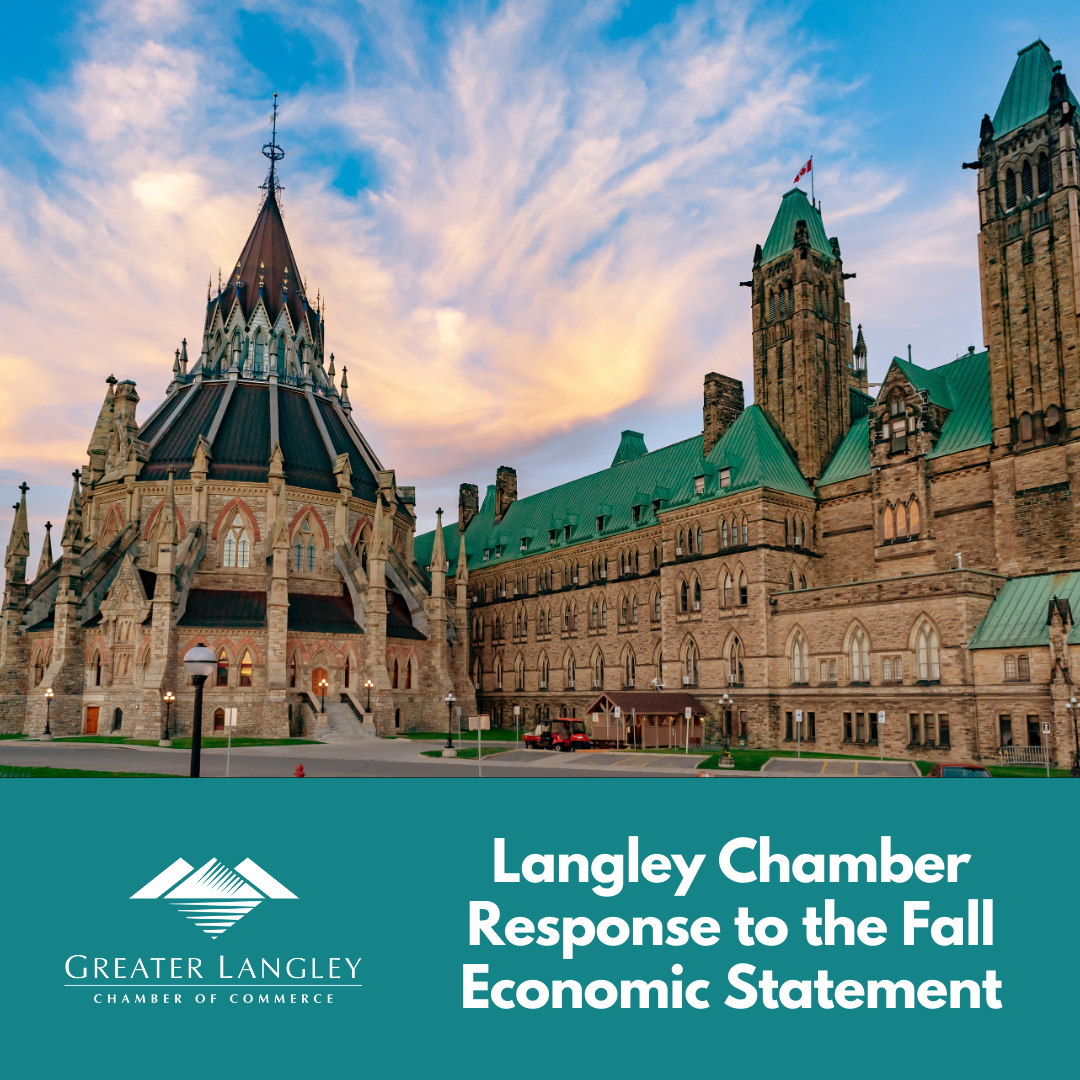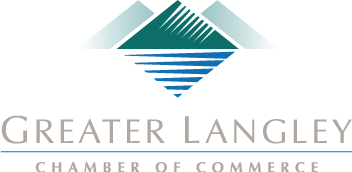Greater Langley Chamber of Commerce Response to the Fall Economic Statement
Greater Langley Chamber of Commerce Response to the Fall Economic Statement

In a time of growing economic uncertainty, it is essential that the government demonstrate fiscal accountability, address critical trade risks, and prioritize investments that boost productivity and competitiveness. The Fall Economic Statement, released today amongst much political turmoil with the unexpected departure of Finance Minister Chrystia Freeland, revealed a staggering deficit 50% greater than budgeted for, as well as some new measures of interest to the business community.
“The Fall Economic Statement -- not the mention the chaotic way it was released -- illustrates the challenges facing the Canadian economy as we continue to run deficits without a clear plan to manage them, jeopardizing the confidence of businesses and investors. Any of our local business owners would understand the dangers of operating in the red year after year, and we would expect the government to have a more serious approach to this,” says Cory Redekop, CEO of the Greater Langley Chamber of Commerce.
Supports for Businesses
- The 2024 Fall Economic Statement proposes to provide up to $500 million over four years, starting in 2025-26, on a cash basis, to the Business Development Bank of Canada to provide financing and expertise to help small- and medium-sized businesses adopt digital technologies, with a priority focus on AI.
- To ensure small businesses benefit from lower credit card fees, the 2024 Fall Economic Statement announces the government is considering legislative measures to compel payment processors to fully pass credit card transaction fee savings on to small businesses.
- The government intends to fully reinstate the Accelerated Investment Incentive (AII), as well as immediate expensing for manufacturing or processing machinery and equipment, clean energy generation and energy conservation equipment and zero-emission vehicles. The previous AII has begun to be phased out starting this year 2024 and is scheduled to end entirely in 2028. This proposes to establish a new AII effective for eligible property newly acquired in 2025 that becomes available for use before 2030. The phase-out period for the new AII would run from 2030–2033.
The federal deficit for the 2023-24 fiscal year has ballooned to nearly $62 billion, far exceeding the $40 billion forecast in Budget 2024. As the Canadian Chamber’s Chief Economist, Stephen Tapp, highlighted:
“Today, we learned that last year’s deficit was significantly larger than promised ─ at nearly $62 billion for the 2023-24 fiscal year, rather than the $40 billion forecast in Budget 2024. Furthermore, we worry that the government might be underestimating the impact of Trump’s looming tariff threat on Canadian exports… no funds are set aside for future contingencies ─ this after a fiscal year that just laid bare the down-side risk of such an approach.”
Navigating Trade Challenges
The looming tariff threats from the U.S. administration pose a significant risk to Canada’s economic stability, endangering jobs and competitiveness across sectors. As Candace Laing, President and CEO of the Canadian Chamber of Commerce, noted:
“Canada needs to prepare for the challenges ahead posed by Trump’s tariff threats. This is the number one issue facing Canadian businesses — it endangers our economic stability, jeopardizes our jobs, and undermines our global competitiveness. From manufacturers to farmers, a strained relationship with the U.S. will be felt across every sector. We salute the $1.3B investment in border security, that signals that the government understands the magnitude of this threat.”
Going Forward
The Langley Chamber calls on the federal government to chart a clear and actionable course to address these challenges. Fiscal responsibility, robust trade strategies, and a commitment to fostering business investment and innovation are essential to securing Canada’s economic future. As we navigate these turbulent times, the Langley Chamber remains committed to working with our national Chamber counterparts, and with the government, to strengthen Canada’s economic foundation and advocate for Langley businesses.
